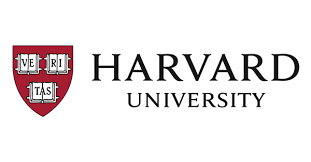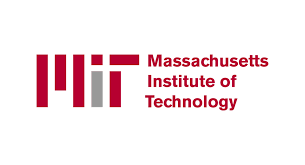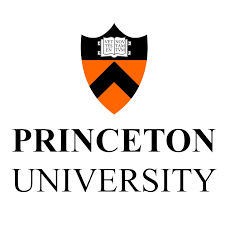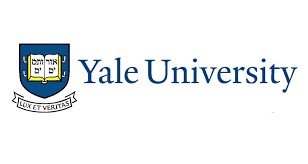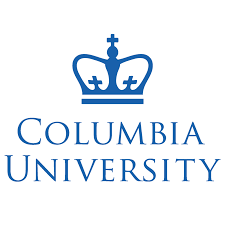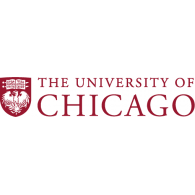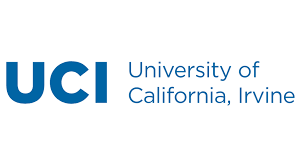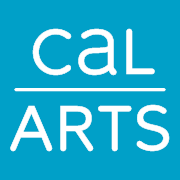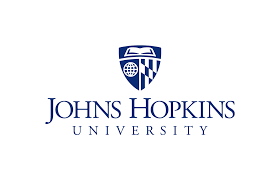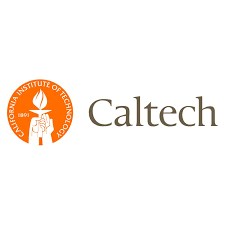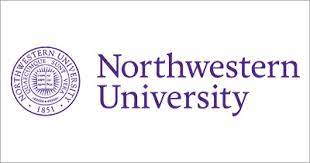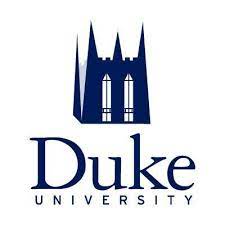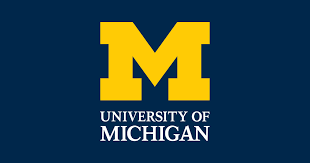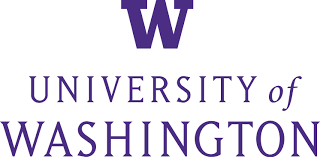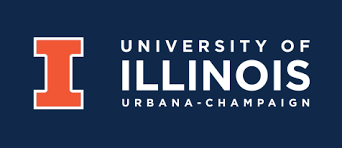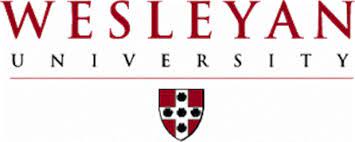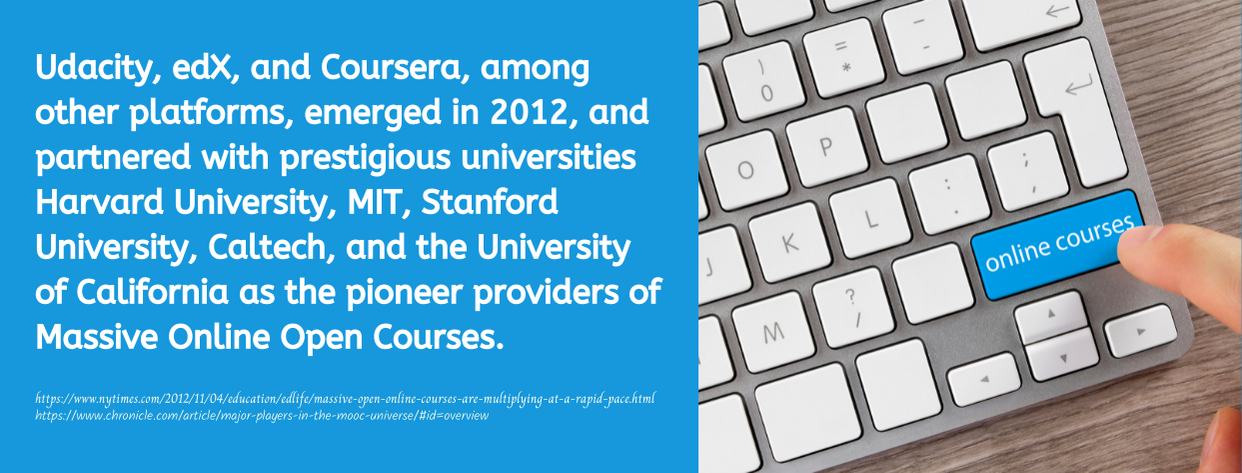Find Your Perfect School
Distance learning isn’t a 21st-century creation, although it may seem like it! From the late 1890s until the early 1920s, correspondence courses were already offered, but few students completed them.
When computers and the Internet became more available to the masses, colleges and universities offered online courses.
Best Colleges That Offer Free Accredited Online Courses

Here are the best universities that offer free accredited online courses. Note that these courses don’t have programmatic accreditation per se since it’s usually conferred on an entire degree program, not on an individual course.
However, these courses, nonetheless, are created by accredited institutions of higher learning. Many, if not most, of these online courses are even based on on-campus courses offered by the universities and, thus, have similar educational values.
Harvard University
Cambridge, Massachusetts
Harvard is among the founders of edX, the premier MOOC provider, and the oldest and most famous university in the United States. Students and professionals seek its free online courses with its reputation for academic excellence and its New England Commission of Higher Education accreditation.
CS50’s Introduction to Game Development
Students learn the basic skills of contemporary game design and development in this 12-week-long course. These skills include 2D and 3D graphics, sound and collision detection, and animation, vital in today’s competitive game industry. Students also learn about C# and Lua programming languages and the LOVE 2D and Unity frameworks.
Students are advised to commit at least six hours to the edX course to keep up with the intermediate-level course. Take note that this isn’t an introductory course, so basic programming skills are a must.
Explorations of the programming design of classic games are also discussed during the course. These games include Flappy Bird, Legend of Zelda, Pokemon, and Angry Birds. Through these explorations, students will create their games, and perhaps present them to their classmates.
Religious Literacy: Traditions and Scriptures
Religion is a tricky topic because of its deep personal connections to believers. However, individuals interested in learning more about its impact on society and individuals will find this 4-week EdX course enlightening. Learners won’t engage in debates about the merits of each religion but explore a wide range of case studies about their multifaceted nature.
Through lectures and video presentations, students gain a deeper appreciation for the internal diversity, evolution and current changes, and influence of religions. The strengths and weaknesses of the world’s major religions are also discussed, an approach that results in a fair perspective. Religion will also be used as a lens, so to speak, in delving deeper into contemporary themes like art and science, power and authority, and gender and sexuality.
Massachusetts Institute of Technology
Cambridge, Massachusetts
MIT is among the so-called six super brands, an institution of higher learning known for its innovations in science and technology. With a long-standing accreditation from the New England Commission of Higher Education, it offers free online courses through its MIT OpenCourseWare website and MITx. All of these courses are characterized by MIT’s inventive spirit, academic rigor, and relevant quality.
Cybersecurity for Critical Urban Infrastructure
For about five weeks and a recommended time commitment of 3-5 hours/week, learners develop their knowledge and skills about cybersecurity as part of urban infrastructure. The wide range of topics includes the people behind cyberattacks and their methods, basics about defensive social engineering, and minimum cybersecurity standards. The proper procedures for recovering after cyberattacks and lessons learned are also discussed.
The advanced-level course is open to students interested in careers in cybersecurity and agency staff and city officials. This is an important course considering the financial costs and non-financial impact of cyberattacks on American assets and lives.
The self-paced course is available for free but an optional upgrade for unlimited access to all course materials. The course itself consists of expert-prepared explanatory videos, role-play simulations, and case studies of real-world cyberattacks.
The Iterative Innovation Process
The 8-week course consists of a specific syllabus for each week, with each succeeding course building on the knowledge gained in the prior courses. The syllabi include the Course Introduction, An Historical Example of Innovation: The Development of the X-Ray and How Do We Define Technology for the first three weeks. In the succeeding weeks, the topics become more fascinating with market applications, implementation and innovation process, and fundamental and incremental innovation.
There’s no prior experience required in the business and management course since it’s an introductory-level one. However, students must have a keen interest in the iterative innovation process and spend about 4-6 hours on the course.
Princeton University
Princeton, New Jersey
Accredited by the Middle States Commission on Higher Education, Princeton University’s Ivy League status makes it among the most sought-after institutions. No wonder MOOCs are so popular among students and professionals that their enrollment is in the thousands! Plus, this course is relevant to the times and is characterized by Princeton’s academic excellence and rigor.
Bitcoin and Cryptocurrency Technologies
In under 24 hours of study, learners of the Bitcoin and Cryptocurrency Technologies course gain a more practical and technical understanding of Bitcoin and its competing technologies. Many of its crucial aspects, including its workings, value, and security, are discussed in depth without overwhelming beginners in the cryptocurrency industry.
This is an entirely free course, so there’s unlimited access to all course materials. But completers aren’t provided with a certificate of completion and, thus, it may not be accepted in résumés. But you can use whatever you learned to your advantage, such as increasing your profits in cryptocurrencies.
Every individual interested in cryptocurrencies is welcome to apply. Software and programming specialists with an interest in their technical and technological aspects will find it particularly useful.
Yale University
New Haven, Connecticut
With accreditation from the New England Commission of Higher Education, Yale University is one of the Big Three universities because of its worldwide prestige. Said prestige also applies to its Open Yale Courses consisting of numerous introductory courses provided for free to interested individuals.
Yale’s distinguished professors and scholars teach these courses, too, and promote the university’s aim of expanding access to learning materials for every learner.
All the courses include pre-recorded video lectures available in video, audio, and text formats. Yale also makes most of these courses available on Coursera and other platforms. While registration isn’t required, Yale doesn’t give academic credits for these courses.
Professor Laurie Santos is the genius behind Yale’s most in-demand course in its 320-year history, The Science of Well-Being. The free online course itself is an iteration of Psychology and the Good Life, a course that highlights happiness-related habits. These aren’t just anecdotal habits either since these are backed by science and proven by countless individuals!
Each section consists of Santos” engaging video lectures and daily activities that build happy habits and optional reading assignments. This course takes an average of 19 hours to complete.
Everyday Parenting: The ABCs of Child Rearing
Parenting isn’t easy, but this introductory course can make it more fulfilling and rewarding! Led by Dr. Alan E. Kazdin, learners learn about behavioral modifications designed to better home life with children. Step-by-step instructions, including demonstrations, are provided, too, on topics like phrasing, tone of voice, and body language.
The course itself takes about 21 hours to complete, but its impact can last for a lifetime. However, learners must also practice the recommended techniques to achieve success in their parenting.
Columbia University
New York City, New York
Columbia University, a private Ivy League university accredited by the Middle States Commission on Higher Education, has a Coursera partnership wherein numerous university-created MOOCs are offered. Started in 2013, Columbia’s MOOCs cover engineering and applied science, education, medicine, and arts and sciences.
Columbia on edX was launched in March 2014. Today, the partnership provides individual courses in numerous fields of study and micro masters and professional certificates. The university’s professors teach all courses.
Statistical Thinking for Data Science and Analytics
The 5-week course is an introductory course that establishes the statistical foundation necessary for the intermediate-level understanding of data science and analytics. Students must have proficiency in high school-level math and a basic understanding of computer programming.
The syllabus covers data collection, analysis and application; conditional probability; and the application of Bayesian modeling and inference. Every week consists of a specific syllabus, an effective approach that introduces every concept at the introductory level and creates the foundational skills for the next level. The Week 1 syllabus, for example, is an introduction to data science followed by statistical thinking in Week 2.
It is a self-paced program. However, to complete the course on time, you must spend at least seven hours per week, 10 hours tops.
Introduction to Corporate Finance
Yet another easy-on-the-schedule course is this 4-week course that allows for self-paced study with a minimum of three hours of study time per week. While it’s an introductory-level class, learners are well-advised to have basic knowledge about accounting and basic skills in the use of MS Excel. This business management-related course is a good fit for aspiring accountants, business managers, and corporate executives.
By the way, this is also a required course for first-year students MBA students at the prestigious Columbia Business School! Just as with the on-campus course, world-class instructors lead the video lectures. Topics include capital budgeting, bonds, and stocks valuation, and the present value of money.
Georgia Institute of Technology
Atlanta, Georgia
Georgia Tech, a public research university accredited by the Southern Association of Colleges and Schools Commission on Colleges, is #4 in the US News & World Report’s ranking of innovative universities in the US Learners in its MOOCs can then look forward to out-of-the-box approaches to traditional topics.
Its MOOCs are offered through its Georgia Tech Professional Education (GTPE) division and Coursera, edX, and Udacity. The topics range from ESL and computing to engineering, for which Georgia Tech is known.
Computing in Python I: Fundamentals and Procedural Programming
Within five weeks, learners gain beginner knowledge about programming, including the write-run-debug cycle, the steps in procedural programming, and variables in complex programs. Knowledge about mathematical, relational, and Boolean operators is also in the works, and it’s crucial in advanced programming. Learners must be able to write small yet effective Python-based programs using logical and mathematical operators and variables.
This is a free course in the auditing track, so there’s limited access to the learning materials. While it’s a self-paced course, learners should spend 9-10 hours per week for best results. The Professional Certificate in Introduction to Python Programming is an associated program if you choose the paid enrolment option.
Human-Computer Interaction I: Fundamentals & Design Principles
Yet another introductory course in computer science, the Human-Computer Interaction I course, doesn’t have prerequisites. The self-paced program has an estimated completion time of six weeks with 5-6 hours per week of recommended time commitment. This is a free course in the auditing track, but a paid enrollment upgrade is available.
The course consists of eight lessons lifted from the popular CS6750: Human-Computer Interaction course taught as part of the Master of Science in Computer Science program. The Georgia Tech Online course highlights the fundamentals of human-computer interaction concerning user interface and user experience design, psychology, and engineering.
University of Chicago
Chicago, Illinois
UChicago, an institution accredited by the Higher Learning Commission, is a highly selective institution with a 6% acceptance rate and correspondingly expensive tuition fees. Fortunately, thanks to its MOOCs, individuals interested in “getting into” UChicago have the opportunity – and without the competitive admission and expensive costs, too! There are plenty of multi-week free courses to choose from, too, including political science, law, religion, physics, and economics.
Understanding the Brain – The Neurobiology of Everyday Life
Keep in mind that while it’s a free course (audited track), learners are encouraged to apply themselves to the course materials diligently. This will take about 28 hours to complete, but it’s quite rigorous, with ten sections to tackle.
Learners in the audited track have free access to most of the course materials. But if you want to obtain a certificate, which includes the graded assignments component, you must enroll in the certificate experience. You can do so during or after your audit experience.
The course highlights the connection between the nervous system and human behaviors. It discusses the brain’s functions and links to the nervous system, neural communication, and neuroanatomy.
Internet Giants – The Law and Economics of Media Platforms
Law and technology are intertwined topics in the Digital Age, and these are the central focus of the 7-week course titled Internet Giants. The flexible deadlines allow working professionals to take the course without undue pressure, but it’s best to complete it within the recommended 60 hours.
Every week comes with a specific topic, so it’s a fairly fast-paced course, too. The topics include Microsoft: The Desktop vs. The Internet; Google Emerges (and the World Responds); Smartphones: and Nondiscrimination and Network Neutrality. Randal C. Picker, a decorated Professor of Law, leads the course.
University of California, Irvine
Irvine, California
UC Irvine, an accredited institution by the Western Association of Schools and Colleges (WASC) Senior College and University Commission (WSCUC), offers 50+ MOOCs at Coursera. These are in different formats, including cohort-based (group of students) and on-demand, the latter being the more common format. The university also has an OpenCourseWare initiative, an OpenChem project consisting of learning materials for an undergraduate chemistry program.
Academic English: Writing Specialization
Proficiency in writing is among the skills necessary for success in college and work! This skill can be developed by attending the Academic English: Writing Specialization course, a 100% free online course with a flexible schedule. There are no academic prerequisites and work experience required, but four hours per week of study time is recommended.
The 6-month course has a free audited track and a paid enrollment option with a shareable certificate option. The former, nonetheless, should be sufficient as an introductory course in academic writing. There are five sections divided into four lecture-based sections and a capstone project.
The sections are on grammar and punctuation, essay writing, advanced writing, and research for essay writing. The capstone project is writing a research paper.
Project Management Principles and Practices Specialization
Project management is a challenging endeavor, but it’s possible with the appropriate education! Start with this free online yet hands-on, intensive, and informative course today. This can also be your foundation for earning a certificate in Applied Project Management. Here, learners acquire the skillsets vital in completing projects in a results-effective and cost-efficient manner.
The average completion time is five months with a one-hour-per-week suggested pace. But you can finish it earlier so you can use your newly acquired skillset in your workplace. This is a beginner-level course with no prior experience in project management required.
Michigan State University
East Lansing, Michigan
MSU has received accreditation from the Higher Learning Commission to offer undergraduate and graduate degrees on a wide range of topics. MSU Online offers many on-campus courses to the university’s online audience. Engineering and technology, health and human services, nursing and medical, justice, and business and leadership are covered.
The university’s MOOCs are offered through the Coursera platform. Many are introductory courses without prior experience required. Most are offered free via the audited track and come with a shareable certificate/paid enrollment option. Access to the course materials, including videos and learning differences.
Become a Journalist: Report the News! Specialization
Aspiring journalists will find this introductory-level course useful in their chosen careers. Even without prior experience, learners can keep abreast of the lessons in this six-month program. This is a self-paced program with a flexible schedule for working professionals and busy students, but a weekly time commitment of four weeks is recommended.
The course consists of five courses designed as interrelated lessons on becoming a journalist specializing in newsgathering. The courses cover the definition of news, the steps in gathering and developing news, and effective news delivery. Learners submit a capstone project consisting of a professional journalist portfolio.
The only prerequisite to enrolling in this course is a passion for video games! Learners can complete it within six months with a two hours per week time commitment. The four courses may have complicated-sounding names, but these are manageable with sufficient study time.
These courses cover pixel art, low poly art, concept art for video games, and contemporary 3D game production. Each class has a self-contained design, but every class connects to the others. Learners then acquire basic knowledge about 2D and 3D games and their art production, which will result in the ability to create game art assets. The apps used include Photoshop, Unity, ZBrush, and Substance Painter.
University of Pennsylvania
Philadelphia, Pennsylvania
UPenn, an Ivy League university with accreditation by the Middle States Commission on Higher Education, offers a wide range of MOOCs via edX and Coursera. Many courses are offered multiple times throughout the year, while some courses are a one-time offering only. Penn’s Online Learning Initiative is known for the exceptional quality of its videos and other learning materials related to its MOOCs.
Business Foundations Specialization
The practical applications of the lessons in the short-term Business Foundations Specialization course range from establishing a new career or small business to applying to business school. Indeed, it’s a great way to get a taste of the prestigious Wharton Business School education for free!
There are five classes in the 7-month course, including introductory classes in marketing, financial accounting, corporate finance, and operations management. The class on Managing Social and Human Capital ties emphasize the importance of effective management of humans’ most crucial asset. Learners acquire skills in reading and interpreting financial statements, effective human resource management through rewards systems, and analysis of business operations.
The course has a capstone project where learners apply their skills in overcoming business challenges. There’s no prior business experience required. This is a self-paced course with a minimum of two hours of recommended study time.
Design: Creation of Artifacts in Society
The beginner-level course on design, which takes about 15 hours to complete, is suitable for aspiring designers or current designers who want to improve their skills. The video lectures and required readings mix design principles and their practical applications for skills development. Learners also hone their skills through weekly challenges that allow their peers to review their work.
The weekly classes include an introduction to design, concept selection and prototyping, and design concepts. The last week involves the submission of a final project.
California Institute of the Arts
Valencia, California
CalArts is a dedicated art university accredited by the Western Association of Schools and Colleges Senior College and University Commission (WSCUC). Programmatic accreditation comes from the National Association of Schools of Dance (NASD) and the National Association of Schools of Art and Design (NASAD).
Online courses are offered through Open Learning at CalArts as well as through Coursera and Kadenze. While these are imbued with the CalArts values of creative excellence, these are non-credit offerings. These are also offered for free as part of the auditing option, but there are certificate options. The courses cover topics in game design, graphic design, and music technology, among others.
Offered through Coursera, the Introduction to Imagemaking course welcomes current and aspiring image-makers who want to acquire new skills. The course focuses on the actual creation of images backed by sound principles of image-making. Learners are well-advised to spend sufficient time and energy on learning the ropes.
The learning outcomes include experimentation with several techniques and materials in graphic design, expanding visual vocabulary to communicate your work better, and creating images. The culmination is an image-based book that showcases your skills in graphic design.
This course consists of five courses in the Graphic Design Specialization program. Its estimated time of completion is 12 hours.
Offered in Kadenze, this is a free, self-paced course that requires six hours of attendance per session. The course is part of the Foundations of Music Technology program, consists of nine sessions, and requires intermediate-level skills.
Participants get a comprehensive introduction to visual programming and audio synthesis through the Native Instruments Reaktor Software. As the course progresses, their education includes audio synthesis and its methods, such as additive and subtractive, granular synthesis, and physical modeling.
Johns Hopkins University
Baltimore, Maryland
Johns Hopkins University, an accredited university by the Middle States Commission on Higher Education, offers interested individuals the opportunity to get a JHU education for free. This is possible through its dozens of free, non-credit online courses through Coursera. You can choose from over 60 MOOCs with topics ranging from data analysis and bioinformatics to patient safety and care.
Johns Hopkins Bloomberg School of Public Health also offers free and open courses via OpenCourseWare. Through its Office of Continuing Medical Education, the School of Medicine also offers online courses for physicians toward their professional development.
Advanced Statistics for Data Science Specialization
Learners in the advanced-level course must possess mathematical sophistication, particularly in linear algebra and calculus, to truly engage in its content. The recommended study time is two hours per week to finish the estimated 5-week completion rate.
The learning outcomes include advanced-level probability, conditional probabilities, expectations, binomial proportions, and confidence intervals. Learners also gain a better understanding of linear regression models, including their canonical examples. The four courses are two boot camps in mathematical biostatistics and two courses in advanced linear models for data science.
Epidemiology in Public Health Practice Specialization
While this is a beginner-level course with no prior experience, most participants have a basic background in public health or epidemiology. The learning outcomes include gaining familiarity with the toolset used in epidemiology and the effective measurement of the health of populations. Learners also develop their professional skills in the collection and analysis of data related to public health surveillance.
The five courses in this specialization are designed to enable learners to become well-versed in epidemiology as applied in the public health sector. These include essential epidemiological tools, data and health indicators, surveillance systems, and outbreaks and epidemics, a timely topic regarding the COVID-19 pandemic.
California Institute of Technology
Pasadena, California
Caltech is a prestigious private research university known for its exceptional programs in science and engineering. With its accreditation from the WASC Senior College and University Commission (WSCUC), its online courses are offered through its Online Education division and MOOC providers. Coursera and edX are the university’s primary MOOC partners.
Through these free online courses, Caltech aims to expand the audience of its science and engineering programs and, thus, to make a difference in society as a whole. Note that these courses don’t come with Caltech course credit.
The Science of the Solar System
This is a free course with a 10-week syllabus that will take about 30 hours to complete. Keep in mind that it’s an advanced-level course where proficiency in undergraduate physics and math is appreciated. But most of the course materials are fairly easy even for basic knowledge of these subjects.
Learners take on a wide range of subjects that expand their understanding of the solar system and its science. The video lectures touch on various topics, including geology, physics, and biology, in understanding the sun, planets, and other bodies. Even bodies outside of the solar system will be discussed. Weekly courses include Water on Mars, Insides of Giant Planets, and Big Questions from Small Bodies.
Take note that cryo-EM isn’t a beginner course and, thus, learners in this online course must possess undergraduate-level physics, math, and biochemistry skills. The course consists of 14.5 hours of videos and 40 modules with a 20-minute average length each. Every module contains a checklist of questions designed to test your understanding of the concepts presented.
The time commitment is more intensive, too, with the recommended time being two hours spent on a video lecture followed by an hour of checking your level of learning. This can be done, however, for just a day every week. The topics covered include principles of cryo-EM, data collection and sample preparation, and basic image processing workflows.
Northwestern University
Evanston, Illinois
Northwestern University, which has accreditation from the Higher Learning Commission, is among the world’s most prestigious universities, so its MOOCs are sought-after courses. There are three ways that individuals interested in Northwestern’s online courses can access them:
- Individual courses are free online courses available through Coursera and other MOOC platforms.
- Course + certificate programs require paid enrollment that provides access to graded feedback and a certificate of completion at the end.
- Specialization programs are also paid enrollment programs wherein learners gain mastery of specific topics. Graded feedback and quizzes, as well as a capstone project, are the norm.
The two courses discussed below belong to the individual courses category and, thus, have a short-term study duration.
Individuals with above-par skills in sports marketing are sought-after professionals. With the Sports Marketing course, you can develop your skills in this area and be more competitive. Professor Candy Lee created the program, and many of the experts in sports marketing joined her in the course.
Since it’s an intermediate-level course, learners must have prior experience and knowledge of sports marketing to benefit from their participation. While it’s a multi-week course. It only takes about 14 hours of dedicated study time to complete.
The similarities and differences of sports marketing with other types of marketing are discussed and sports communication. The lectures include ticket pricing strategies, sponsorship development, and the use of social media in sports promotions.
Fundamentals of Digital Image and Video Processing
In just 36 hours of dedicated study time, you can learn the basic principles, tools, and techniques to process digital images and videos. This is a self-paced course with flexible deadlines and a shareable certificate, which can be earned with a small fee, but it’s also offered as an auditing course.
There’s an emphasis on mathematical frameworks in creating, describing, and analyzing 2D and 3D images in various domains. State-of-the-art tools become among your best resources to become a better professional and, thus, more competitive in the job market.
Duke University
Durham, North Carolina
Duke University, a prestigious university with accreditation from the Southern Association of Colleges and Schools Commission on Colleges (SACSCOC), offers flexible learning opportunities through online courses.
These courses were developed by Duke faculty specifically with online learners in mind and the Duke values of global impact, empowerment, and inclusivity. Plus, you can enjoy a Duke education without subjecting yourself to its highly selective admission process – only a 5.7% acceptance rate for the Class of 2025.
Dog psychology is at the heart of the course, which can be completed in about 22 hours. The subjects include Finding Your Dog’s Genius, Evolutionary Accidents, and Problems that Dogs Can and Cannot Solve. Indeed, you will find that it’s the kind of online course that’s well worth your time, particularly if you’re a dog owner or trainer.
The course tackles a wide range of dog-related topics, including animal behavior and cognition, experimental methodology, and cognitive theory. The knowledge learned can be applied to understanding your canine pets or to designing a better training module.
Entrepreneurial Finance: Strategy and Innovation Specialization
The intermediate-level specialization course is designed for executives and entrepreneurs who want to learn more about business innovations and gain business insights. Created by faculty from Duke’s Fuqua School of Business, it’s a short-term course that can be completed in approximately four months. The recommended study time is three hours per week.
There are four courses in the specialization course, with each one building on the prior one. The first course discusses the valuation of entrepreneurial ventures, while the second course tackles financial management strategies for startups. This is followed by discussions on blockchain technologies before the final course that teaches R programming in portfolio management.
University of Michigan Ann Arbor
Ann Arbor, Michigan
The Higher Learning Commission accredits UMich, and it’s known for its exceptional degree programs in STEM, arts and humanities, and medicine. With its reputation as a leading public research university, its free online courses offered through Michigan+ and Coursera are the most popular. Current UMich students, staff, and faculty members have free access to its 4,000+ Coursera courses.
Sleep: Neurobiology, Medicine, and Society
This is a beginner-level course with about 21 hours of completion time. But don’t dismiss it as too easy since a certain level of exposure to the science behind sleep is recommended. This is a 12-week course divided into major categories, including the neurobiology, medicine, and society sections.
Each section typically has 2-3 parts, such as the medicine section consisting of six sub-topics, including an overview of sleep medicine, treatments for insomnia, and sleep and anesthesia. The entire course is designed to provide reliable, relevant, and up-to-date information about sleep and its biological, individual, and societal impact.
Python for Everybody Specialization
With millions of enrollees, the Python for Everybody Specialization course is arguably the most popular Umich MOOC! Beginners in the programming language are welcome to enroll, too, and it will take about eight months to complete. Working professionals will find it convenient as it’s a self-paced course with a three-hour per week suggested time commitment.
The learning outcomes include learning the basics of Python, writing and installing a Python program, and using core programming tools. Your Python skills will be useful in your academic or professional career by the end of the course.
University of Washington
Seattle, Washington
The Northwest Commission accredits the University of Washington on Colleges and Universities. As among the nation’s foremost public research universities, it’s also a recognized pioneer in online education. Since 2001, it has offered diverse courses through its online learning unit known as UW Online.
UDub also offers MOOCs through edX and Coursera, many of which are also taught in on-campus classes. These courses may be free through the audited option and have a certificate option with a small fee.
Machine Learning Specialization
Practical case studies are the primary mode of learning used in the Machine Learning Specialization course. Learners develop their skills in machine learning, linear regression, and regression analysis. The course also includes practical applications of Python programming, deep learning, and logistic regression.
Since it’s a specialization course, learners must have intermediate-level related experience to get the most out of the lessons. This is a short-term, self-paced program completed in seven months with three-hour weekly study time.
Localization: Adapting Digital Content to Local Markets
The advanced-level course welcomes learners with the knowledge of a foreign language, although it isn’t a requirement. Learners who have completed the related courses Introduction to Internationalization and Localization and Localization and Internationalization: Creating Digital Content for the World may have an advantage. Again, these aren’t compulsory requirements.
Industry experts provide valuable insights into the localization and adaptation of digital content in foreign markets. Learners also gain skills in creating and managing localization projects, cost and schedule management, and quality assurance.
University of Illinois at Urbana-Champaign
Urbana and Champaign, Illinois
The University of Illinois Urbana-Champaign has accreditation from the Higher Learning Commission for undergraduate, graduate, and professional programs. Said accreditation might also cover the online courses offered at Coursera, which are available for both U of I members and non-members.
Current students, staff, and faculty members usually have free access to over 180 non-credit Coursera MOOCs and specializations. These courses are designed to provide opportunities for career advancement, skillset expansion, and exploration of interests.
Innovation: From Creativity to Entrepreneurship Specialization
The beginner-level course consists of seven modules tackling topics like strategic innovation, creativity toolkits, and entrepreneurship. Many of the modules have two parts, too, such as the creativity toolkit and entrepreneurship sections, with each part discussing a different aspect. The entire course can be finished in eight months with a suggested four-hour weekly time commitment.
Learners submit a capstone project that integrates their lessons across all the topics discussed. The project can discuss real-life situations within your enterprise or in another organization.
With its flexible schedule and 100% online delivery, the intermediate-level Data Mining Specialization course attracts working professionals and advanced students. This is a short-term course requiring about eight months to complete and at least four hours per week of study time.
Here, learners gain skills in more sophisticated data mining techniques applied to structured and unstructured data. The coursework includes pattern discovery, data visualization, and text mining and analysis. Learners submit a capstone project highlighting solutions to real-world challenges in data mining.
Wesleyan University
Middletown, Connecticut
Wesleyan University, a private liberal arts university accredited by the New England Commission of Higher Education (NECHE), offers several MOOCs through Coursera. These are imbued with the Wesleyan spirit of academic rigor, intellectual boldness, and practical idealism.
Creative Writing Specialization
Creative writing shouldn’t be such a difficult skill to develop with this specialization course! There’s less time pressure, too, considering it’s a self-paced program with flexible scheduling and 100% online delivery. Experience isn’t required either, but you should have basic writing skills to thrive in the 6-month course.
Learners develop their skills in short story writing, fiction writing, narrative essays, and even write their memoirs. The skillset consists of a balance between creative writing and technical copy editing. The capstone project is an original story in your desired genre.
The completely online course is a fascinating survey of the history of the people and places of ancient Greece. The survey covers the periods from the Bronze Age to Socrates. The sections include Prehistory of Homer, the Archaic Age, and the Persian and Peloponnesian Wars.
But the 20-hour course doesn’t just describe historical events! Learners will also touch on their broader impact on society then and now, including the evolution of social and political values.
The History of the MOOC
The New York Times dubbed 2012 “the year of the MOOC” due to the emergence of Udacity, edX, and Coursera, among other providers in partnership with prestigious universities. Harvard University, MIT, Stanford University, Caltech, and the University of California were pioneers.
Today, many of the United States’ top universities, including Ivy League institutions like Yale, Princeton, and Columbia University, offer Massive Online Open Courses. Many also offer online courses through their respective distance education departments.
The great news about MOOCs and other online courses is that you can take them for free! You can access quality education and training from top universities at little cost except for your computer and Internet connection. You have the opportunity to learn a wide range of subjects from arts and humanities to science, technology, and math, too.
Think of it as a world of lifetime learning at the click of a mouse, in the comfort of your own home, and at your own pace. You will learn new skills, develop old skill sets, and use them to your personal and professional advantage.
What is a MOOC?
But before plunging into the world of free online courses, including MOOCs, here are a few things that you may want to know about them. Let’s define MOOCs since these are the most common free online courses offered by accredited colleges and universities.
MOOCs is the acronym for “massive open online courses”, and these were launched in 2008, followed by their widespread adoption as a distance learning platform in 2012. Their general nature can be better understood by keeping these simple definitions in mind:
- Massive since there’s no limit to enrollment. Thanks to the virtual classroom setup, many courses can have thousands of enrollees from around the US and the world.
- Open because any individual with a computer and an Internet connection, as well as a keen interest in the subject, can enroll. There’s no admission process, no tuition fees, and no transportation concerns.
- Online since these courses are delivered through the Internet.
- Online courses because MOOCs are designed to teach a specific subject, such as Python programming, usually with sub-topics.
MOOCs are akin to online courses offered by colleges and universities through their online schools, although there are also significant differences. Their typical components include readings, pre-recorded video lessons, problem sets, and traditional course materials like assignments and quizzes. Social media discussions and interactive courses are also common aspects.
However, it must be noted that graded work is an uncommon aspect of MOOCs, particularly in free and audited courses. MOOCs are typically offered in these enrollment options:
- The free option, also known as audited attendance, is a limited-access plan where learners can access the readings, videos, and forums for free.
- The paid enrollment option provides learners with full access to all the course content, including the graded assignments and certificate of completion.
Many courses have a free or audited option and a paid enrollment option for a small fee. But this option doesn’t come with a certificate of completion, which may be useful for a career change or advancement purposes.
MOOCs may also have specific restrictions even when offered for free, with or without an audited option. These restrictions may include learners under 13 years old and individuals from certain countries outside of the United States. The latter can be attributed to government policies and trade restrictions.
Most free online courses, including MOOCs, are created by colleges and universities offering them on different platforms. While a few offer these courses on their websites, most use one or more course providers for distribution purposes.
- edX, a no-profit site, is the brainchild of Harvard and MIT. The site offers university-level accredited online courses in a comprehensive range of topics, as well as conducts learning-related research. There are more than 3,000 accredited online courses available offered by over 150 schools, corporations, and non-profit organizations.
- Coursera, a for-profit MOOC provider, has more than 150 schools offering over 4,000 accredited online courses on its website.
- Udacity, a for-profit MOOC provider, differentiates itself from its competition by being the go-to site for skilled workers and professionals with vocational-accredited online courses.
- Kadenze, a for-profit MOOC provider, offers accredited online courses in music, art, and creative technology.
MOOCs’ start and end dates are usually specified, but it’s always best to check the dates. Some may start at any time; some have regular starting dates; some may also be offered once and then never again.
The duration of MOOCs also varies, so checking the time duration and commitment before enrolling is also recommended. The courses last from a week to 16 weeks, and the attendance requirements vary just as widely.
Deadlines may or may not be present in a specific MOOC. If it’s a self-paced course, you have the option to go slow or fast, depending on your schedule. If it’s run on a schedule, you must be aware of the deadlines and comply with them. This is particularly true for courses that release the course materials on a staggered basis, say, once a week.
The assessments, including quizzes and exams, usually have deadlines, so it’s best to keep up. But even with scheduled courses, you’re still in charge of your time in the sense that you can study at your own pace, day or night.
Earning academic credits or a professional credential after completing a MOOC depends on the specific policies regarding the online course. Sometimes, you may get a professional certificate in a free course, but you will be required to pay a fee for it more often than not.
As for academic credit, you may earn it, but you may only use it in the specific school that offers the online course. The academic credit itself typically comes from a paid enrollment, not a free or audited one. In rare cases, MOOC credit may be accepted by other institutions aside from the course creator, but it’s up to the former’s discretion; ask about transfer policies before enrolling.
The Final Word
In conclusion, learning should be a lifetime endeavor because there’s just so much that the world has to offer! Distance, cost, and time shouldn’t be a big deal either, thanks to the abundance of choices in free online courses from the world’s top universities.

